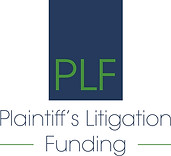Legal Funding Ethics: What Attorneys Need to Know
Introduction
Legal funding is an essential tool for many plaintiffs, but it comes with a responsibility for attorneys to understand and navigate the ethical considerations involved. This blog explores the ethical dimensions of legal funding and provides guidance for attorneys to maintain integrity and client trust.
The Importance of Transparency
Transparency is crucial in all aspects of legal funding. Attorneys must ensure that clients fully understand the terms, potential risks, and benefits of entering into a funding agreement. This includes detailed discussions about fees, interest rates, and repayment terms.
Avoiding Conflicts of Interest
Attorneys need to vigilantly avoid any conflicts of interest when recommending funding options. This means being mindful of their own potential gains from funding companies and always prioritizing the client’s best interests.
Navigating Regulatory Landscapes
The legal funding industry is regulated differently across various jurisdictions. Attorneys must be well-versed in the laws and regulations applicable to their practice area to advise their clients appropriately and ensure compliance.
Best Practices for Ethical Funding
Adhering to best practices in legal funding not only protects clients but also preserves the attorney’s professional reputation. This includes selecting reputable funding companies and advocating for fair terms on behalf of the client.
Case Studies on Ethical Challenges
Including case studies that highlight ethical challenges and how they were successfully navigated can provide practical insights for attorneys. These examples can serve as learning tools and reinforce the importance of ethical considerations in legal funding decisions.
Conclusion
Ethical considerations are integral to the responsible use of legal funding. By adhering to these guidelines, attorneys can effectively support their clients’ financial needs while upholding the highest standards of the legal profession.
